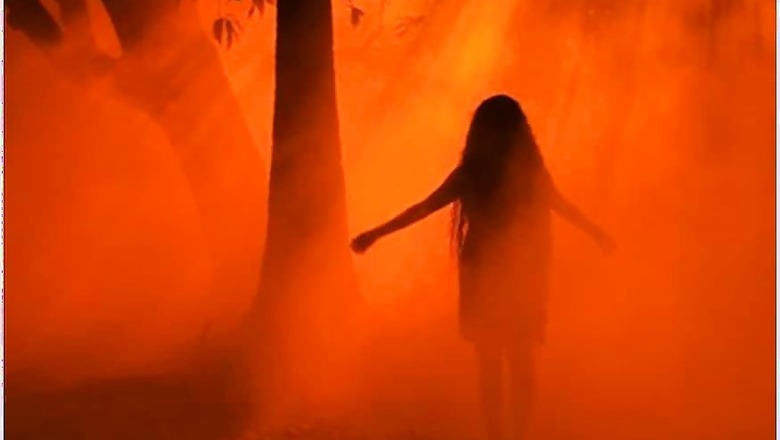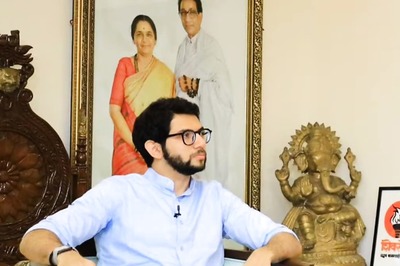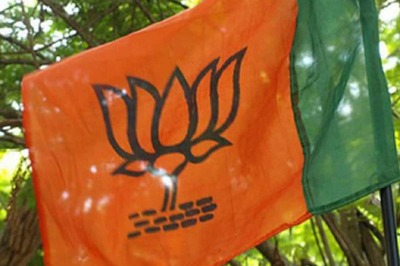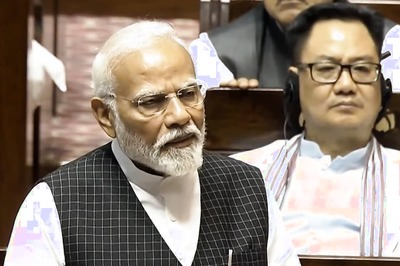
views
Wronged women rising up as supernatural beings against their oppressors is a tale as old as time, narrated in literature and cinema over and over again. What is against convention, deviant from patriarchal norms, has been termed supernatural quite often. And most of these otherworldly beings have been female, as representatives of the more oppressed, exploited gender.
The film Bulbbul, which released on Netflix recently, is set in 19th century Bengal. It starts with the now-abolished custom of Gauridaan (giving away the child bride) and builds up a story of a free-spirited woman forcibly shackled by society.
Writer-director Anvita Dutt upends the idea of the witch, often portrayed as a conniving, evil woman with magic powers by the Brothers Grimm, German authors who collected and published folklore during the 19th century. The women painted as evil, more often than not, were victims of patriarchal diktats.
A woman who tries to break free, whose desires are misunderstood, has often been termed a ‘chudail’. Bulbbul’s chudail haunts the forest and hunts men who abuse women. The men refuse to acknowledge her as a natural being, and so she remains an enigma, something to be feared.
In that, Bulbbul echoes of another Bollywood film, 2018’s Stree, which mixed horror and comedy to present a feminist concoction the modern-day audience lapped up gladly. The men in the town of Chanderi are captured by a spirit of a woman scorned in love. All she is looking for is the dignity denied to her by society.
We’ve seen instances of this in the Victorian Era novels of Charlotte Bronte – Jane Eyre and Villette. The female protagonists of Bronte’s fiction are repressed and subdued. Jane Eyre and Lucy Snowe hide the passionate side of their personalities from the outside world, the male-dominated society. This repression manifests itself in the form of mysterious figures that haunt both novels.
In Bronte’s time, outspoken and aggressive women were considered unladylike. The ideal woman was calm, quiet, and submissive. Powerful women were often viewed as threatening. Much like Anvita Dutt’s Bulbbul, who questions everything from a young age, and so her spirit needs to be caged with a toe-ring, lest she fly away.
Anvita’s story might be set in 19th century, but she has made the film for a 21st century audience. What makes these Victorian era story-telling tropes relevant to the smartphone-wielding generation, we ask.
Anvita says, “What was true then is also true now. Even though Bulbbul is a period film, the issues being addressed in the story are resonating today because they are relevant today. It has changed, it has evolved, but it is still very much a reality, and that is our tragedy."
Bulbbul and Stree are rather uncommon examples of horror films with feminist narratives in current Hindi cinema. Priyadarshan’s Malayalam film Manichitrathazhu (1993), later remade in Tamil as Chandramukhi and in Hindi as Bhool Bhulaiyaa, also had a female protagonist manifesting her suppressed psychological turmoils into the spirit of a dancer wronged by a powerful man.
Satyajit Ray’s Teen Kanya (1961) examined the gender equations of those times in an unconventional way. One of the three stories in the anthology film, Monihara, used horror to draw attention to the assertion of feminine independence, in the form of the spirit of a woman who is obsessed with her jewellery.
Gold, or streedhan, as a symbol of female independence or power, was again explored in Aparna Sen’s directorial Goynar Baksho (2013). The period horror comedy shows the spirit of the family matriarch becoming the guardian angel of a stammering, unconfident niece-in-law, with the help of her box of jewels.
Talking about the scarcity of such stories in Hindi cinema today, Anvita says, “We have a very rich source of mythology in our oral tradition, and our folktales. But we don’t make much of that in our films, which is pretty surprising. Even in our folktales usually the supernatural being is a woman. It comes from the fact that demons usually are of your own creation. Only when you opress a woman she becomes a force that you can’t understand and you’re frightened of it."
“I remember Raj Nidimoru (of Raj and DK, producers of Stree) narrating the core idea of Stree to me many years ago. And I found it fascinating. I think Raj and DK, Amar Kaushik, Aparna Sen are also feminists, and so was Satyajit Ray, and they were fascinated by the supernatural because we actually grow up with our grandmother’s tales. They leave an impression on you. And some filmmakers then choose to revisit that way of storytelling," Anvita adds.
Anvita finds the genre fascinating and continues to work in that zone to tell more stories with a supernatural touch. Meaningful horror movies are rare, feminist horror movies, even rarer. Here’s hoping that Bulbbul’s popularity leads to more such stories for the Netflix-watching generation.
Follow @News18Movies for more



















Comments
0 comment